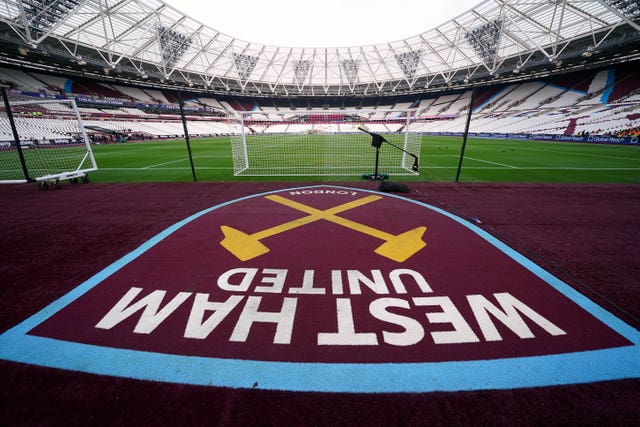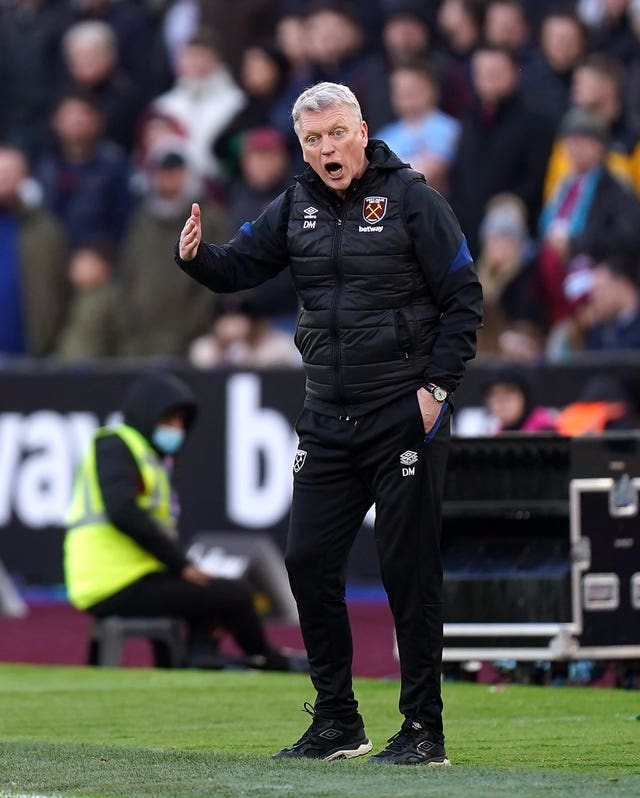
David Sullivan and David Gold completed their takeover of West Ham on this day in 2010.
The business partners acquired a 50 per cent stake in the Premier League club, with an option to purchase the remaining 50 per cent, in a deal that valued the Hammers at £105million.
The pair, both Hammers supporters, had turned their attention to the east London outfit after selling Birmingham, where they had been in control 16 years, earlier in the 2009-10 season.

West Ham had been controlled by a consortium led by an Icelandic bank since the previous year. They, in turn, had assumed ownership after former chairman Bjorgolfur Gudmundsson ran into serious financial difficulties.
Sullivan and Gold’s purchase ended a long period of uncertainty at the club, which at the time had overall debts of around £100million. It was completed after Tony Fernandes, the Malaysian businessman who subsequently bought QPR, pulled out of the race.
Sullivan and Gold brought with them Karren Brady, a key part of their business set-up at Birmingham, as vice-chairman.
Sullivan spoke immediately of a “seven-year plan” to qualify for the Champions League and to move the club from Upton Park to the Olympic Stadium.
He conceded, however, the heart had ruled the head when it came to the investment.
“We would not buy this club at all if this wasn’t West Ham,” said Sullivan, who along with Gold had owned a stake in the club two decades earlier.
“It makes no commercial sense for anyone to buy this club. It is a serious mess.”
But Gold added: “We are not potty fans. We are sensible in our approach, and are measured.”

The pair later increased their holding. Their plans suffered a setback when the team was relegated to the Championship in 2011 but they bounced back the following year and have remained in the top flight since.
The club moved to what is now known as the London Stadium in 2016. Champions League football is yet to be achieved but, under David Moyes, they challenged for it last year and are doing so again this term.
Sullivan and Gold brought in investment from Czech businessman Daniel Kretinsky last year. He bought a 27 per cent stake which could give him the footing for a full takeover in due course.


Why are you making commenting on The National only available to subscribers?
We know there are thousands of National readers who want to debate, argue and go back and forth in the comments section of our stories. We’ve got the most informed readers in Scotland, asking each other the big questions about the future of our country.
Unfortunately, though, these important debates are being spoiled by a vocal minority of trolls who aren’t really interested in the issues, try to derail the conversations, register under fake names, and post vile abuse.
So that’s why we’ve decided to make the ability to comment only available to our paying subscribers. That way, all the trolls who post abuse on our website will have to pay if they want to join the debate – and risk a permanent ban from the account that they subscribe with.
The conversation will go back to what it should be about – people who care passionately about the issues, but disagree constructively on what we should do about them. Let’s get that debate started!
Callum Baird, Editor of The National
Comments: Our rules
We want our comments to be a lively and valuable part of our community - a place where readers can debate and engage with the most important local issues. The ability to comment on our stories is a privilege, not a right, however, and that privilege may be withdrawn if it is abused or misused.
Please report any comments that break our rules.
Read the rules here